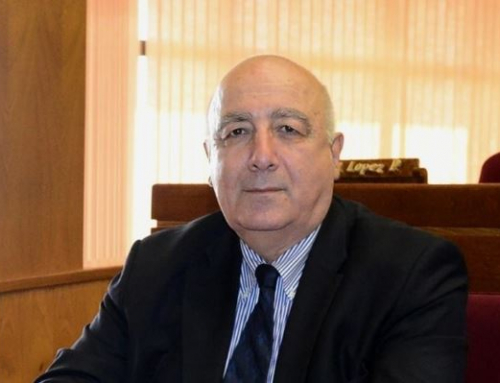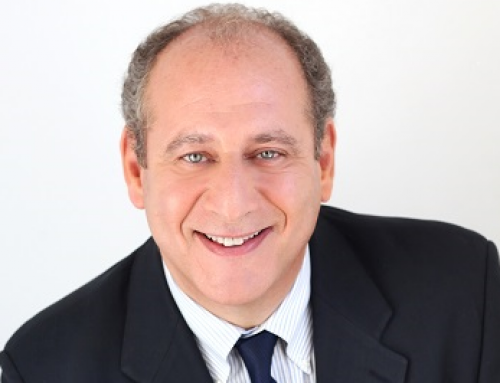 In just a couple of days after Bidzina Ivanishvili, a Georgian billionaire known internationally as Boris Ivanishvili, had announced his plans to establish his own political party, to run for the parliamentary and presidential elections due in 2012 and 2013, to win decisively both elections, and to set up a new one-party government, the Georgian authorities claimed that Mr. Ivanishvili forfeited his Georgian citizenship. If the government’s claim gets through what it will mean for the richest man in this country and number 185 in the world according to the Forbes rankings is that he will not be eligible either for running for elections or for setting up a political party. But how could it happen that the owner of a huge property worth of US $5.5 billion lost franchise overnight? Was the government’s decision lawful or arbitrary one? We will try to answer these questions by analyzing relevant provisions of the Georgian Constitution and the law on citizenship, as well as the requirements of the European Convention on Human Rights to which Georgia is a party.
In just a couple of days after Bidzina Ivanishvili, a Georgian billionaire known internationally as Boris Ivanishvili, had announced his plans to establish his own political party, to run for the parliamentary and presidential elections due in 2012 and 2013, to win decisively both elections, and to set up a new one-party government, the Georgian authorities claimed that Mr. Ivanishvili forfeited his Georgian citizenship. If the government’s claim gets through what it will mean for the richest man in this country and number 185 in the world according to the Forbes rankings is that he will not be eligible either for running for elections or for setting up a political party. But how could it happen that the owner of a huge property worth of US $5.5 billion lost franchise overnight? Was the government’s decision lawful or arbitrary one? We will try to answer these questions by analyzing relevant provisions of the Georgian Constitution and the law on citizenship, as well as the requirements of the European Convention on Human Rights to which Georgia is a party.
What we will start with is to quote completely the government’s announcement that was publicized in the Civil Registry Agency’s website on 11 October 2011. It reads as follows:
“On 22 July 2004,Bidzina Grigol Ivanishvili, a citizen of the Russian Federation, was granted the Georgian citizenship. Pursuant to the Constitution of Georgia and Article 32 of the Organic Law on Georgian Citizenship, acquisition of the citizenship of another state by a Georgian citizen will entail the loss of the Georgian citizenship. In compliance with the Organic Law on Georgian Citizenship, [administrative] proceedings were conducted by the Civil Registry Agency and it was found that in 2004, after he had become a Georgian citizen, Bidzina Ivanishvili acquired citizenship of the French Republic. In view of the above circumstances, in compliance with the requirements of the Constitution of Georgia and Article 32 of the Organic Law on Georgian Citizenship, Bidzina Ivanishvili forfeited the Georgian citizenship.”
The following conclusions may be drawn from the above quotation:
1) On 22 July 2004, Mr. Ivanishvili, then the Russian citizen, was granted a Georgian citizenship as well. In other words, he acquired a dual citizenship. Under Article 12, paragraph 2, of the Constitution of Georgia, “a citizen of Georgia may not at the same time be a citizen of another state, except in cases established by this paragraph.” Nevertheless, the President of Georgia is authorized to grant Georgian citizenship to a citizen of another state if the latter “has a special merit before Georgia or granting the Georgian citizenship to him/her is in the State interests.”
The above provision contains two rules of which one is a basic rule and the other one is an exception from it. The former provides that as a matter of principle, dual citizenship is prohibited in this country; the exception, however, says that if the president considers it worthwhile to grant the Georgian citizenship to a citizen of a foreign country, the prohibition of dual citizenship does not apply. Thus, while granting the Georgian citizenship to Mr. Ivanishvili, the State of Georgia, acting through its president, decided not to apply the prohibition of dual citizenship and granted Mr. Ivanishvili the right to be a citizen of both the Russian Federation and Georgia.
2) Sometime later, Mr. Ivanishvili became a citizen of one more state, the French Republic, which fact is now claimed by the government to be a legitimate reason why Mr. Ivanishvili has forfeited his Georgian citizenship. We doubt that this kind of reasoning is in harmony not only with the letter but also with the spirit of the above quoted Article 12(2) of the Constitution and the organic law on citizenship.
It is true that pursuant to Article 32, subparagraph (d) of the Organic Law on Georgian Citizenship, a person will lose the Georgian citizenship of he/she acquires citizenship of another state. Having read this provision in a straightforward way, the Georgian authorities hurried to conclude that Mr. Ivanishvili lost his Georgian citizenship. However, the question is whether this straightforward reading of one distinct legal rule, taken out of the context of the entire Georgian law on citizenship was a right thing to do.
To answer this question, what we should do in the first place is to focus on the apparent object and purpose of Article 32(d) of the Organic Law on Georgian Citizenship. There is little doubt that its object and purpose are concurrent with the Constitutional prohibition of dual citizenship. One should forfeit a Georgian citizenship whenever one becomes a citizen of another state just because the above-identified basic Constitutional rule is that a Georgian citizen may not be a citizen of another state. But we already know that this basic rule has an exception: a foreign citizen may be granted a Georgian citizenship if the president decides so. In other words, the president may rule that the prohibition of dual citizenship should not be applied because the person in question deserves to be a Georgian citizen. But that’s where an interesting question arises: if it was all right to forget about the prohibition because the person in question deserved the Georgian citizenship why would it be fair and logical to restore the prohibition just because the same person acquired the citizenship of a third state? There seems no plausible answer to this question.
Secondly, although there is a rule which prescribes the loss of a Georgian citizenship by a person who acquires the citizenship of another state, there is no rule which would prescribe the loss of a Georgian citizenship by a dual citizen who was granted the Georgian citizenship by the rule of exception. What the government did, therefore, was that it applied the basic rule of prohibition to a person whose dual citizenship once had been considered excusable. Applying the basic prohibition rule to the person who was granted Georgian citizenship by means of exempting him from the same prohibition rule seems to be a too broad, unfair, and arbitrary interpretation of the basic rule in defiance of the object and purpose of the exception. And such a broad interpretation of the basic rule unjustifiably affects Mr. Ivanishvili’s right to be a citizen of the country where he was born, grown up and lived for a long time if not for the most of his life.
3) As must be clear to all no discussions about the forfeiture of citizenship by a Georgian billionaire would have taken place had Mr. Ivanishvili not announced his intention to run for elections. One might, therefore, presume that by depriving Mr. Ivanishvili of the Georgian citizenship, the government pursued an aim to disenfranchise him or take away his right to vote and stand for elections. If this is true, another question one may ask is whether the disenfranchisement was compatible with the requirements of Article 3 of Protocol No. 1 of the European Convention on Human Rights.
The said Article provides: “The High Contracting Parties undertake to hold free elections at reasonable intervals by secret ballot, under conditions which will ensure the free expression of the opinion of the people in the choice of the legislature.”
The European Court of Human Rights (ECtHR) has clarified that Article 3 of Protocol No. 1 guarantees individual rights, including the right to vote and to stand for election (Hirst v. The United Kingdom (No. 2), Application no. 74025/01, Judgment of 6 October 2005, §57). The rights bestowed by Article 3 of Protocol No. 1 are not absolute. There is room for implied limitations and the States parties to the Convention enjoy a wide margin of appreciation in this sphere (Ibid., §§60-61). It is, however, for the ECtHR to determine in the last resort whether the requirements of Article 3 of Protocol No. 1 have been complied with; it has to satisfy itself that the conditions do not curtail the rights in question to such an extent as to impair their very essence and deprive them of their effectiveness; that they are imposed in pursuit of a legitimate aim; and that the means employed are not disproportionate (Ibid., §62).
Furthermore, as the ECtHR has noted in its another precedent judgment, “the object and purpose of the Convention, which is an instrument for the protection of human rights, requires its provisions to be interpreted and applied in such a way as to make their stipulations not theoretical or illusory but practical and effective (see, among many other authorities”. “The right to stand as a candidate in an election, which is guaranteed by Article 3 of Protocol No. 1 and is inherent in the concept of a truly democratic regime, would only be illusory if one could be arbitrarily deprived of it at any moment. Consequently, while it is true that States have a wide margin of appreciation when establishing eligibility conditions in the abstract, the principle that rights must be effective requires that the eligibility procedure contain sufficient safeguards to prevent arbitrary decisions” (Namat Aliyev v. Azerbaijan, Application no. 18705/06, Judgment of 8 April 2010, §72).
In view of the above principles. the questions which legitimately arise in this particular situation are what legitimate aim was pursued by the government when it disenfranchised Mr. Ivanishvili and whether the means employed were proportionate to such legitimate aim if one ever existed. In particular, it would be interesting to hear from the government why Mr. Ivanishvili’s acquisition of the French citizenship was an issue if Mr. Ivanishvili had been granted the Georgian citizenship by the rule of exception. And if there is any meaningful legitimate aim, there should also be a plausible explanation why the complete disenfranchisement of Mr. Ivanishvili was the only possible and proportionate solution to the problem of dual citizenship and any other more lenient measure (e.g. sending a warning to Mr. Ivanishvili that he might forfeit the Georgian citizenship if he refused to waive the French citizenship) would not be enough to solve the problem.
4) So far we were discussing the substantive aspect of the problem. But even if one admits for a moment that the substantive arguments set forth in the previous three paragraphs are erroneous, there is one more – this time not substantive, but procedural – problem due to which the government’s claim of forfeiture also seems troublesome.
Article 33, subparagraph (d), of the Organic Law on Georgian Citizenship provides that it is the President of Georgia not any other government agency who is empowered to make decision, inter alia, on the loss of the Georgian citizenship. Under Article 35, an application for one’s forfeiture of the Georgian citizenship should be presented by a court, prosecutor’s office or the ministries of the interior and the foreign affairs to the Civil Registry Agency (CRA), However, under Article 36(2), if the CRA becomes aware of any reasons why one may forfeit his/her Georgian citizenship from any other source, not the agencies enlisted in Article 35, it will “consider the question of forfeiture and present the materials to the President of Georgia”. Finally, under Article 37(1), if the president approves the CRA proposal for one’s forfeiture of the Georgian citizenship, he will issue a decree.
The above rules make it perfectly clear that only the president of Georgia may decide that a person has forfeited his/her Georgian citizenship for whatever reason. The CRA only may “consider” the question and “present the materials” to the president for his approval or disapproval.
What we may understand from the CRA’s above-quoted statement is that the CRA decided on its own that “Bidzina Ivanishvili forfeited the Georgian citizenship”. There is no reference to a presidential decree as one should expect in view of the above procedural rules set forth in the Organic Law on Georgian Citizenship. There should be only two alternative scenarios: (a) either there is no presidential decree and the CRA took the decision on its own which means that it arbitrarily assumed a responsibility which lawfully belonged to the president not to the agency; or (b) actually there is a presidential decree which for some reason was not shown to the public and most importantly to the affected person, Mr. Ivanishvili himself. If this is true, it would be interesting how the president would justify his decision in view of the arguments to the contrary set forth in the preceding paragraphs.
Whatever the reasons why the government believes that Mr. Ivanishvili has forfeited his citizenship and franchise, from the standpoint of law he has not as long as a relevant presidential decree does not exist. If, however, the decree already exists or, alternatively, appears in the near future, Mr. Ivanishvili may enjoy a right to appeal it in the court. And the court will definitely have to review and give plausible answers to all legitimate questions that we have raised in this essay.
Alexander Baramidze is an attorney at law residing in Georgia




Leave A Comment
You must be logged in to post a comment.